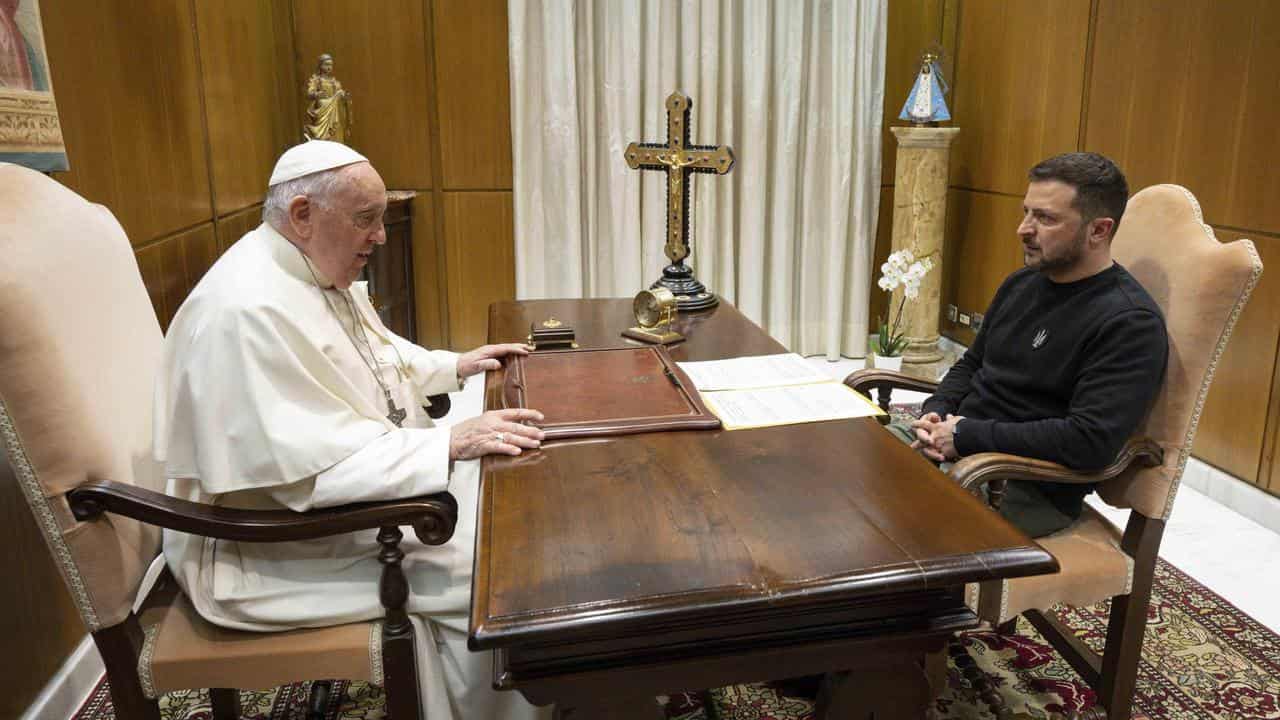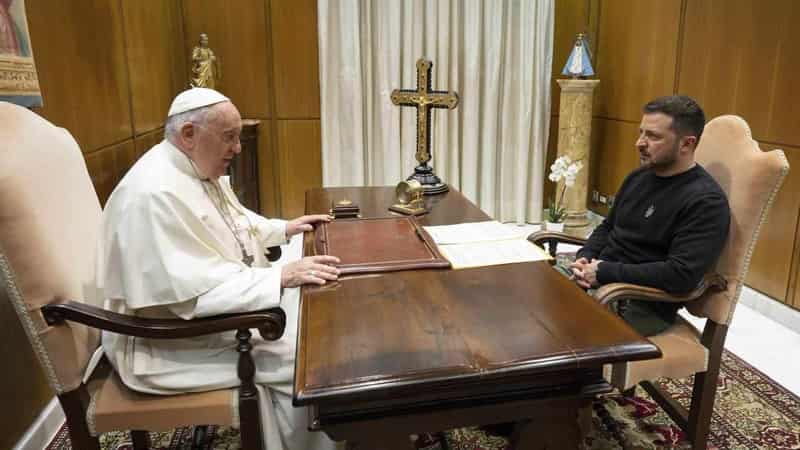
Ukraine has rebuffed the Pope's call to negotiate an end to the war with Russia, with President Volodymyr Zelenskiy saying the pontiff is engaging in "virtual mediation" and his foreign minister saying Kyiv will never capitulate.
Pope Francis said when things were going badly for a party to a conflict one had to show the "courage of the white flag" and negotiate.
The Pope's interview was believed to be the first time he has used terms like "white flag" or "defeated" in discussing the Ukraine war, though he has referred in the past to the need for talks.
Zelenskiy made no direct reference to the Pope or his comments but mentioned religious figures helping inside Ukraine.
"They support us with prayer, with their discussion and with deeds. This is indeed what a church with the people is," he said in his nightly video address.
"Not 2500 km away, somewhere, virtual mediation between someone who wants to live and someone who wants to destroy you."
Foreign Minister Dmytro Kuleba, writing on the X messaging platform, said the strong person in any dispute "stands on the side of good rather than attempting to put them on the same footing and call it 'negotiations'".
"Our flag is a yellow and blue one," Kuleba wrote in English, referring to the Ukrainian national flag. "This is the flag by which we live, die, and prevail. We shall never raise any other flags."
Kuleba also pointed to allegations that Pope Pius XII failed to act against the Nazis in Germany in World War Two.
"I urge (the Vatican) to avoid repeating the mistakes of the past and to support Ukraine and its people in their just struggle for their lives," he wrote.
European officials supporting Ukraine in efforts to evict Russian troops denounced the Pope's comments.
"How about, for balance, encouraging (Russian President Vladimir) Putin to have the courage to withdraw his army from Ukraine? Peace would immediately ensue without the need for negotiations," Polish Foreign Minister Radek Sikorski responded with a post on X, formerly Twitter.
In a separate post, Mr Sikorski drew parallels between those calling for negotiations while "denying (Ukraine) the means to defend itself" and European leaders' "appeasement" of Adolf Hitler just before World War II.
Andrii Yurash, Ukraine's ambassador to the Holy See, said it is "necessary to learn lessons" from that conflict. His post on X appeared to compare the Pope's comments to calls for "talking with Hitler" while raising "a white flag to satisfy him".
A Vatican spokesman later clarified that the Pope supported "a stop to hostilities (and) a truce achieved with the courage of negotiations", rather than an outright Ukrainian surrender.
Kyiv remains firm on not engaging directly with Russia on peace talks, and Zelenskiy has said multiple times that the initiative in peace negotiations must come from the country that has been invaded.
Throughout the war, the Pope has tried to maintain the Vatican's traditional diplomatic neutrality, but that has often been accompanied by apparent sympathy with the Russian rationale for invading Ukraine, such as when he noted that NATO was "barking at Russia's door" with its eastward expansion.
Last year the pontiff told Russian youth to take pride as heirs of tsars like Peter the Great, held up by President Vladimir Putin as an example to justify his actions in Ukraine.
with Reuters









